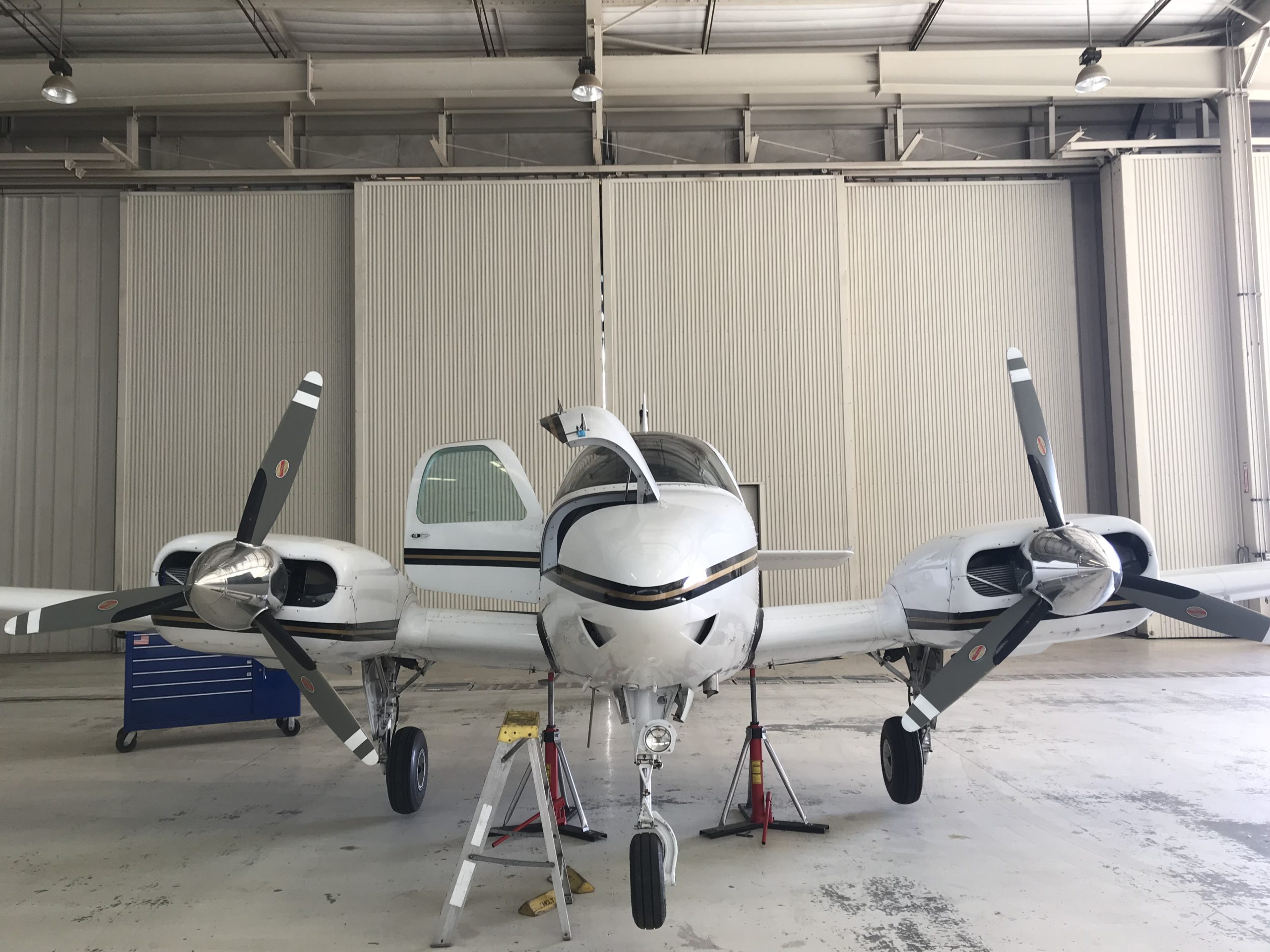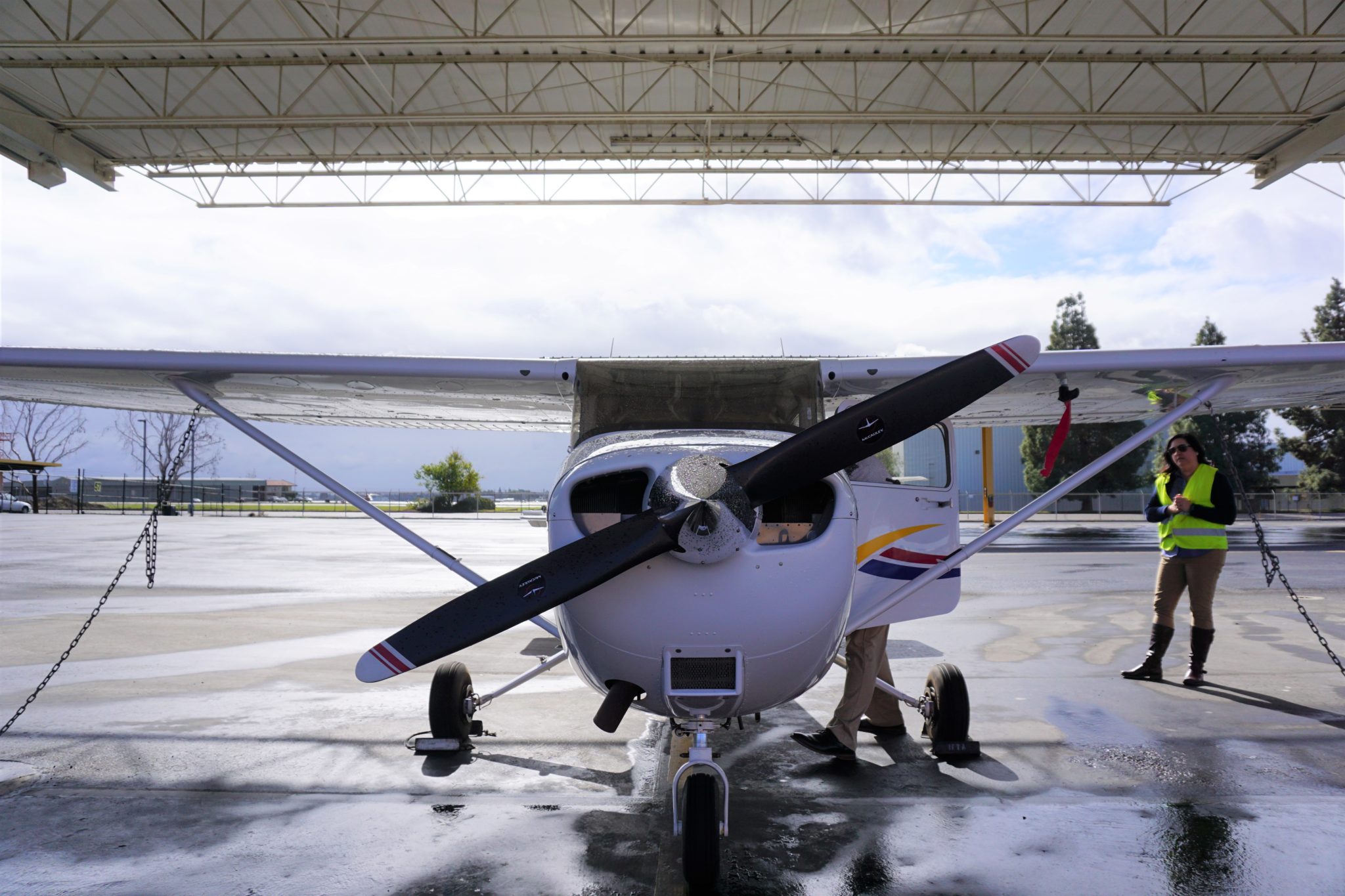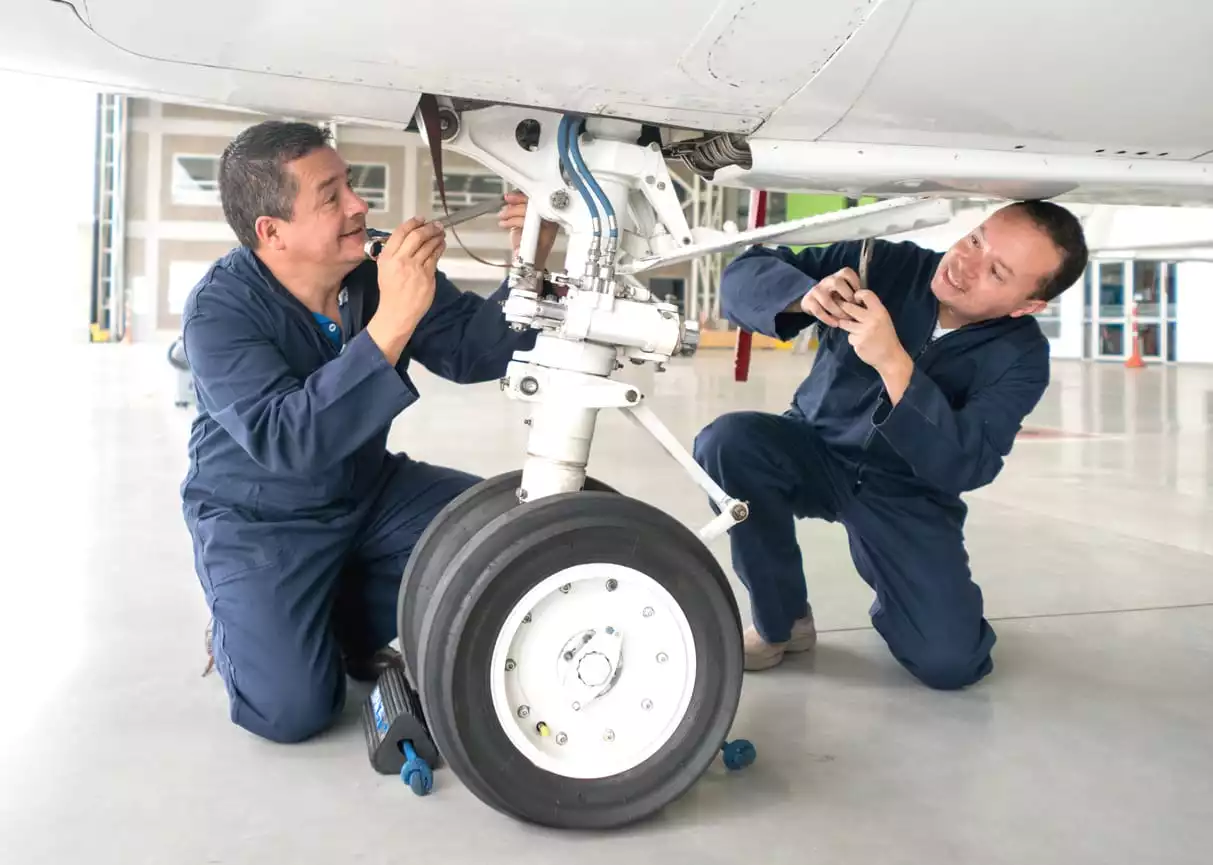Become an Aircraft Mechanic
If you are looking for an exciting and diverse role, becoming an aviation mechanic could be for you. Without aircraft mechanics, also called A&P (airframe and powerplant) technicians, aircraft simply cannot get off the ground.
Aircraft mechanics enjoy practical and dynamic work, great salaries, career advancement opportunities, and the opportunity to work in the global, thriving aviation industry.
If you enjoy being around airplanes, diagnosing and fixing problems, and enjoy practical and physical work, becoming an aircraft mechanic might be for you. But is it a good career path?
Want to become an aircraft mechanic? This guide is for you!
Ready to become the AMT you're meant to be?
Click below to start your aircraft maintenance training journey today at CAU!
Contact CAU
Visit CAU
1450 Boughton Drive
Bakersfield, CA 93308
See All Locations
Call CAU
661-615-5915
Email CAU
[email protected]
CAU Aircraft Mechanic Programs
The CAU's Associate of Science in Aviation Maintenance Technology program prepares graduates for long-term career growth in aircraft maintenance. See program details below
- 22 months
- 90 Instructional Weeks
- 90 credits
- Hands-on training
- Prepares students for A&P Certification
- Includes Partnership with Sonic Tools
The CAU aircraft and aviation maintenance technology diploma program prepares graduates for careers in general aviation, FBOs, major and regional airlines, and more. See some program highlights below.
- 17 months
- Hands-on training
- 75 Instructional Weeks
- 90 credits
- Prepares students for A&P Certification
- Includes Partnership with Sonic Tools
Why become an aviation mechanic?
Becoming an aircraft mechanic involves at least 17-24 months of specific hands-on AMT training. With your fresh-out-of-training aircraft mechanic license, a variety of job opportunities await in many sectors of the industry!
A&P mechanics enjoy many career benefits, including competitive salaries in a high-demand industry, often with job perks like travel benefits and a real impact on global travel.
Aircraft Maintenance Career Benefits
A&P mechanics enjoy many career benefits, including competitive salaries in a high-demand industry, often with job perks like travel benefits and a real impact on global travel.
A growing aviation industry and an aging workforce mean the demand for aircraft mechanics is currently high, and it’s expected to remain high for years. According to the Bureau of Labor Statistics, “overall employment of aircraft and avionics equipment mechanics and technicians is projected to grow 5 percent from 2023 to 2033, about as fast as the average for all occupations.”
$75,020 was the average annual wage for aircraft mechanics and service technicians in 2023 according to the Bureau of Labor Statistics. Additionally, they highest 10 percent earners made more than $114,750.
An entry-level mechanic may work underneath other A&P mechanics to begin, but the opportunity for advancement is common in the aviation industry. Advancement opportunities can include lead mechanic, inspector authorization (IA), maintenance planners, supervisors, quality control inspector, or maintenance controller, to name a few.
Air travel is vast, and so are the opportunities for aircraft mechanics! An aircraft mechanic license can open doors to global travel. While federal regulations and job requirements vary by country, many U.S.-based airlines, cargo carriers, and corporate jobs offer positions overseas. Additionally, aircraft technicians in the military can expect to travel around the world as part of their duties.
As an aircraft mechanic, you’ll mostly work inside aircraft hangars at airports and in other facilities on the airport grounds. However, the job also requires spending time outdoors, working in various weather conditions, especially when performing maintenance on aircraft that are parked outside or during flight operations
Most of the work aircraft mechanics do is hands-on, meaning you’re actively involved in repairing aircraft, lifting and moving heavy parts, and frequently shifting between different tasks. The job requires physical stamina and adaptability, as you’ll often move from one task to the next in a dynamic work environment.
Job stability for aircraft mechanics is excellent, with strong growth prospects and an aging workforce ensuring that aircraft mechanics remain in high demand. Most positions offer comprehensive benefits packages, retirement plans, and other perks, making it a viable and sustainable long-term career choice in most cases.
Travel perks are a great benefit of airline mechanic jobs. Airline employees typically fly standby for little to no cost, and aircraft mechanics often have the opportunity to ride in the aircraft jumpseat when traveling with their airline. Additionally, for corporate flight departments or general aviation mechanic roles, travel may be required when an aircraft needs repairs at an off-base location. These travel opportunities add a unique and exciting element to the job.
As an aircraft mechanic, there are numerous opportunities to develop a wide range of skills. Whether you’re interested in sheet metal, avionics, or composite specialties, or you want to move into leadership and management roles within an aircraft maintenance department, there’s something for everyone. Many companies offer additional training—often at no cost—once you’re an active employee, helping you further expand your expertise and advance your career.
Ultimately, aircraft mechanics are the ones who keep airplanes in the air. They are the experts who identify what works and what doesn’t when it comes to making aircraft fly. As a result, they play a crucial role in making safety recommendations and improvements. Experienced mechanics have a direct impact on the safety of aircraft and can provide valuable feedback on design flaws and future innovations in the industry.
Aircraft Mechanic Career Paths
Aviation maintenance professionals have a wide range of career paths to choose from. Whether you’re interested in working on military helicopters, servicing small aircraft at local airports, or maintaining the largest airplanes operated by cargo carriers and commercial airlines, there’s a path role that suits your skills and aspirations.

Commercial Airlines
Major U.S. airlines, such as Delta Air Lines, United Airlines, and American Airlines, offer some of the highest compensation for aircraft mechanics. These positions come with extensive training, favorable working conditions, and valuable airline travel benefits, making them highly desirable in the industry.

Cargo Airlines
Like passenger airlines, cargo carriers such as UPS and FedEx offer aircraft mechanics attractive compensation, including competitive salaries and comprehensive benefits packages. The opportunity to work on large aircraft in these operations is particularly appealing to many A&P mechanics.
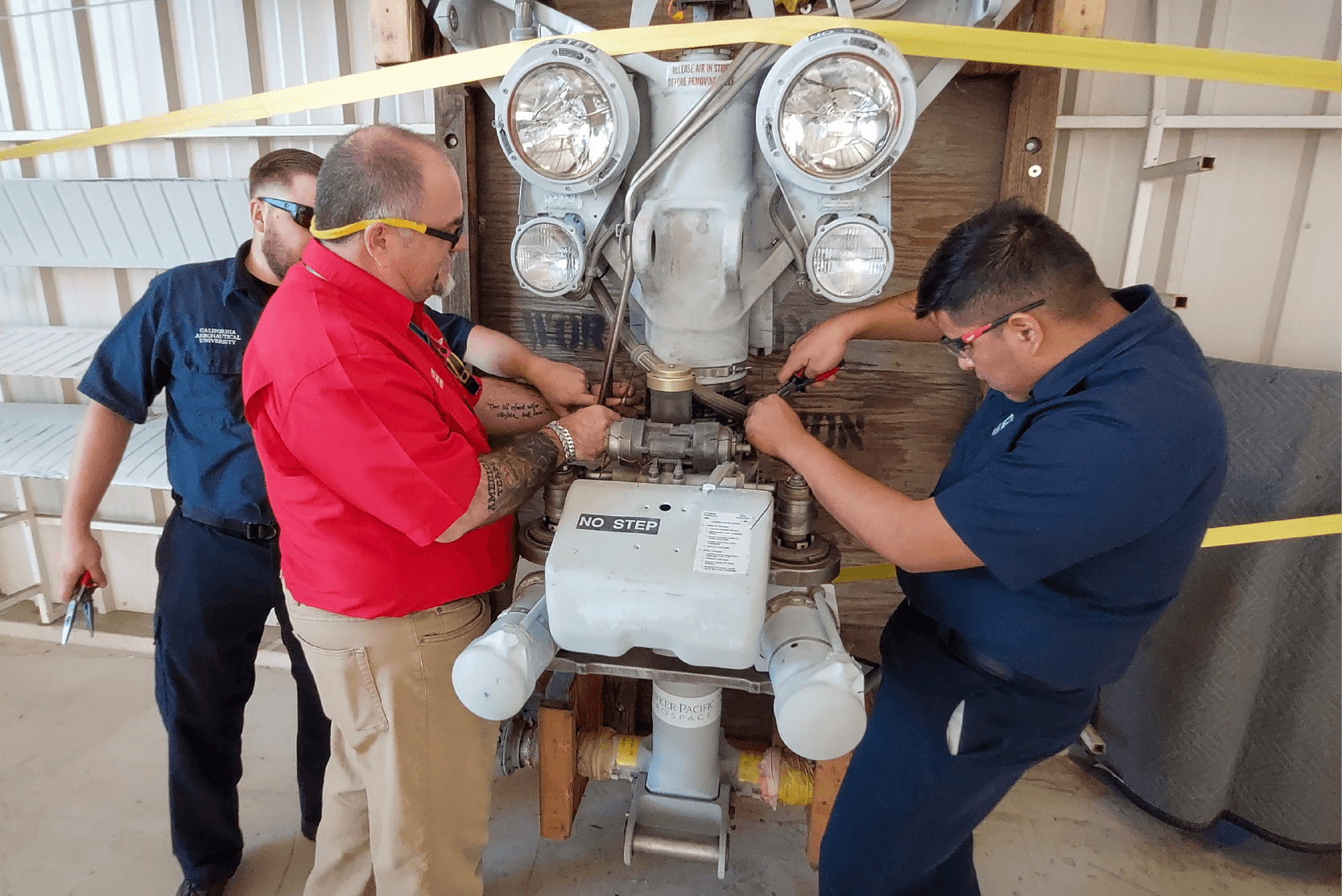
General Aviation
Local airport operators, including corporate and charter services, private companies, and flight schools, frequently hire mechanics and often provide competitive compensation packages based on regional demand. Traditionally, local airports have faced a consistent shortage of aircraft mechanics. With the continuous expansion of the aviation industry, the demand for these skilled professionals is expected to rise even further.
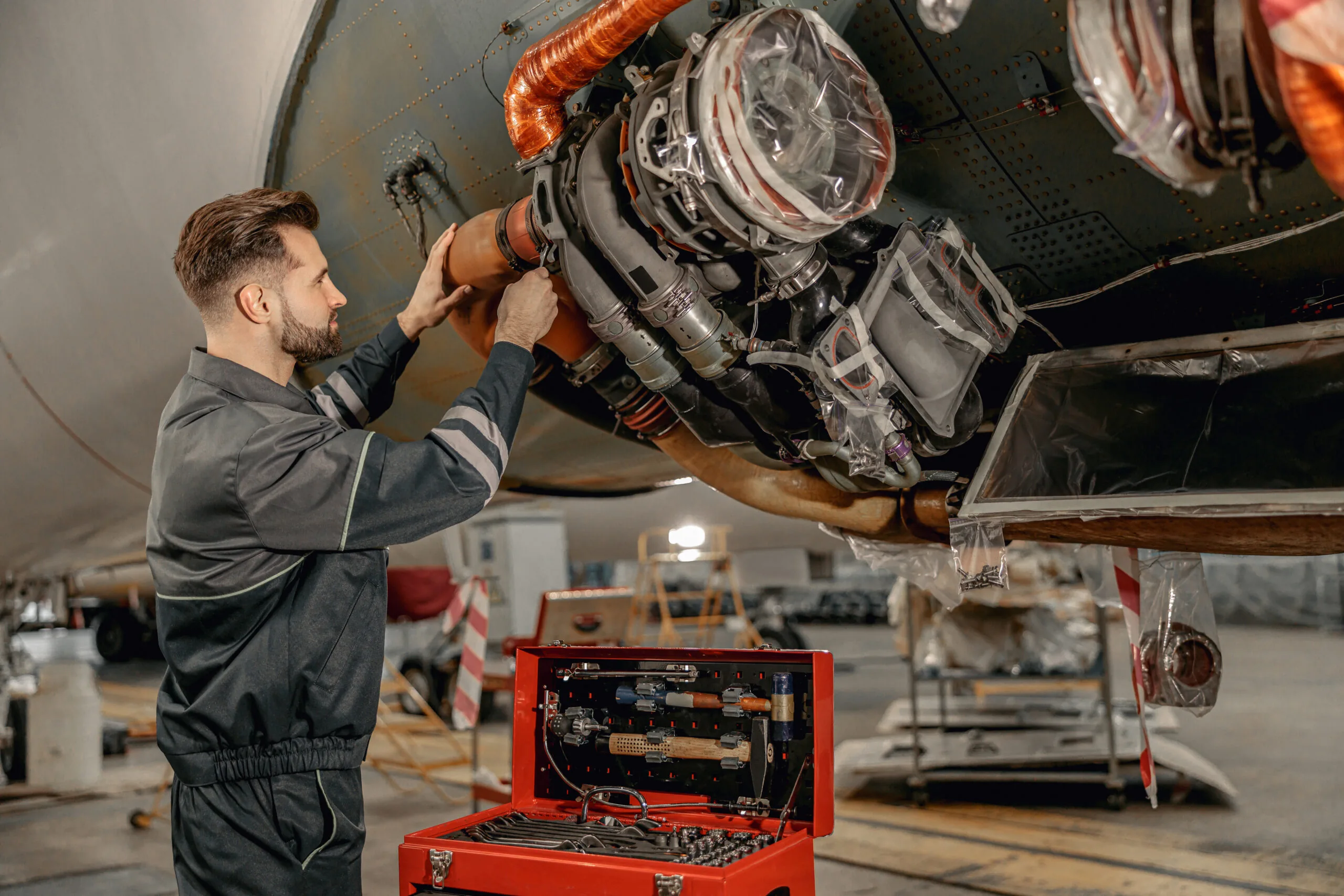
Military and Defense
If the military aligns with your career goals, becoming an aircraft technician in the military and defense sector offers significant benefits. You’ll receive fully funded training, opportunities to travel, and competitive compensation. Additionally, military roles often include housing benefits, cost-of-living allowances, and clear paths for career advancement through promotions.
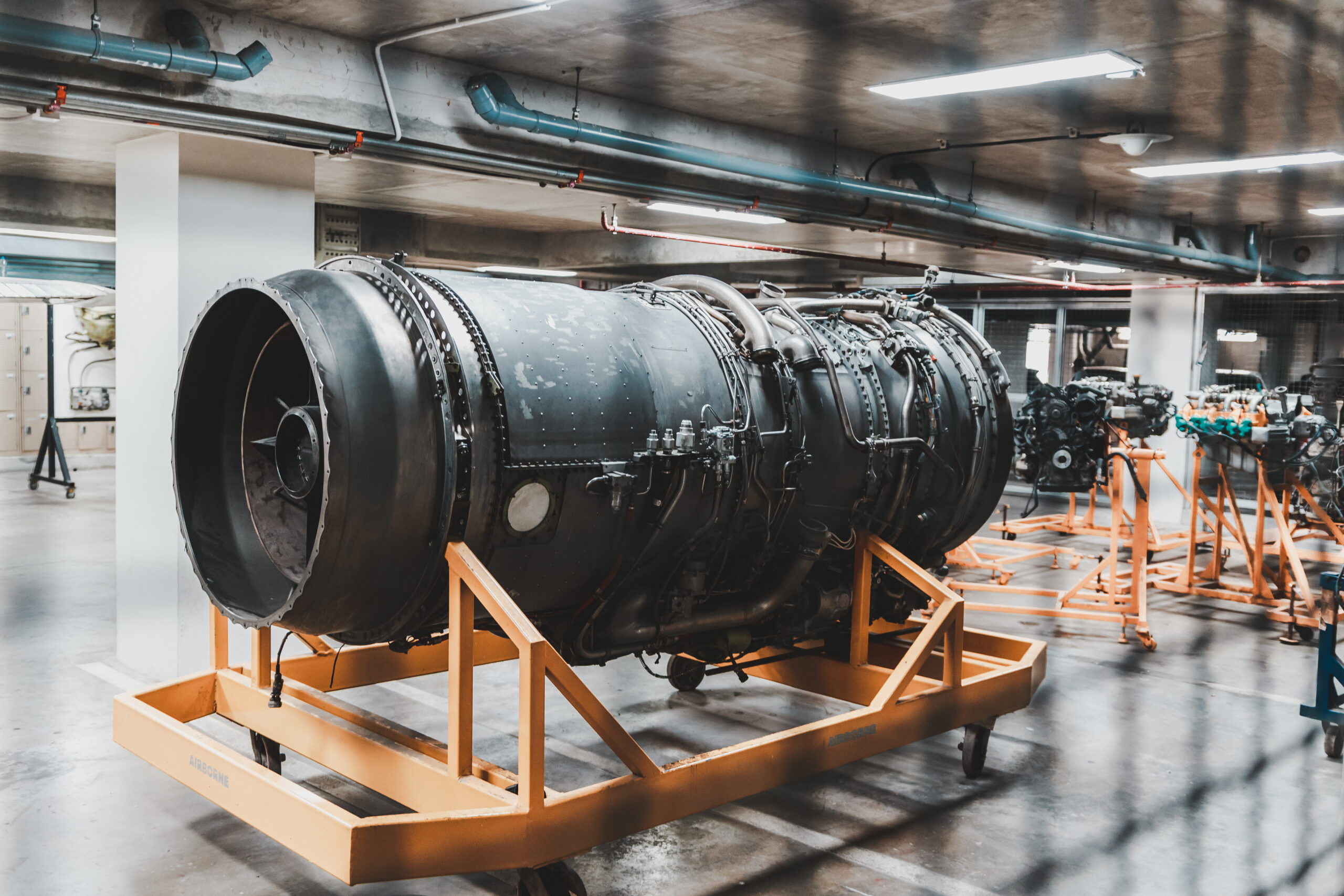
Aircraft Manufacturing
Aircraft manufacturers rely heavily on skilled aircraft mechanics to ensure their success. Without them, building and testing airplanes wouldn’t be possible. From industry giants like Boeing and Airbus to smaller manufacturers such as Cessna/Textron and Piper Aircraft, A&P mechanics play a vital role in keeping these companies operational and their aircraft in the skies.

Maintenance, Repair, and Overhaul (MRO) Facilities
MROs are third-party service providers for airlines and private owners.
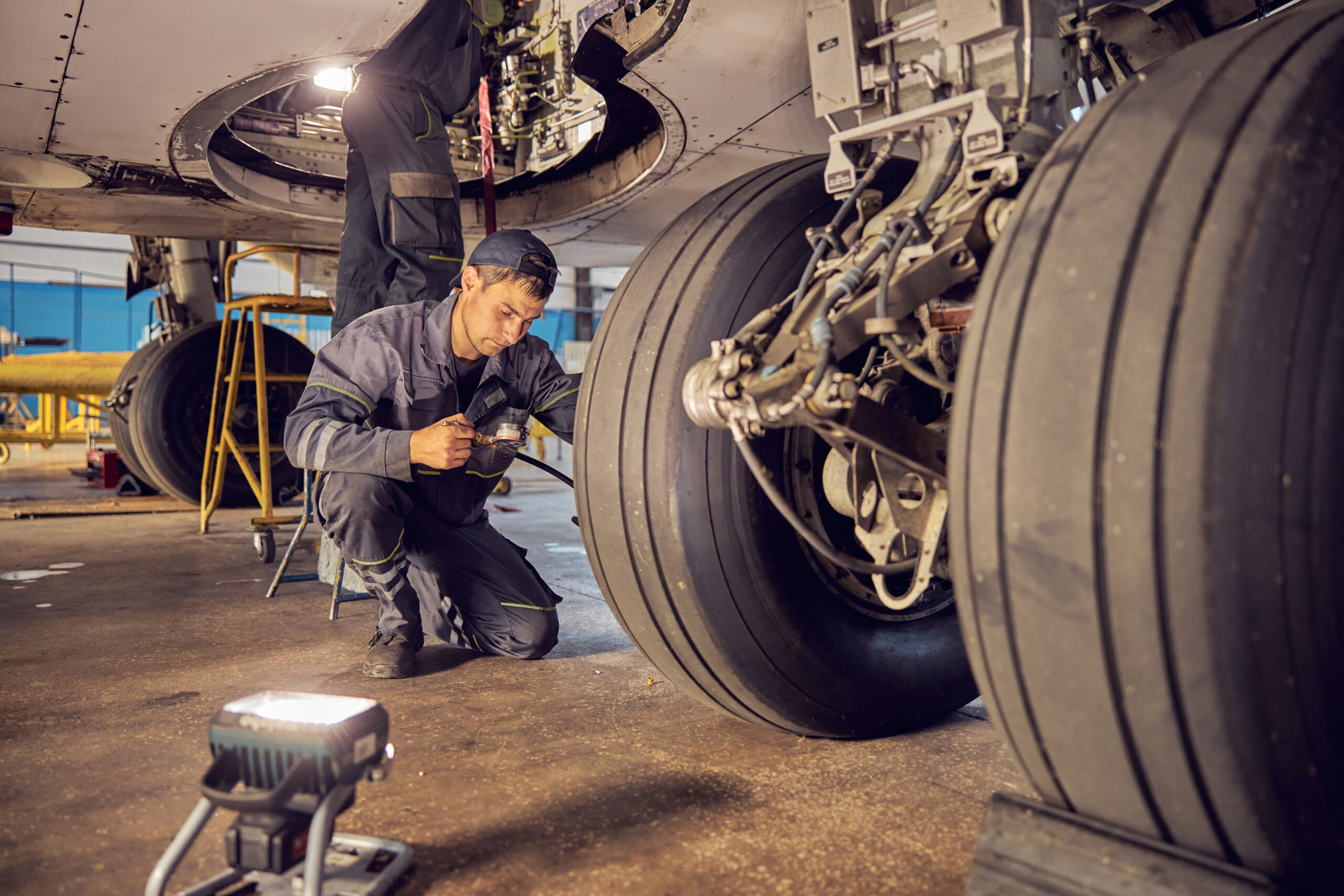
Government Agencies
Government agencies at both the state and federal levels frequently hire Airframe and Powerplant (A&P) mechanics to maintain and repair their aircraft fleets. State agencies may utilize aircraft for a variety of purposes, including law enforcement, government travel, and the management of state parks and natural resources.
At the federal level, departments such as the Department of Homeland Security (DHS), the Federal Aviation Administration (FAA), and the National Park Service (NPS) regularly employ A&P mechanics to ensure their aircraft are safe and operational. Other federal agencies, such as the U.S. Forest Service, the Department of Defense (DoD), and the U.S. Customs and Border Protection (CBP), also rely on skilled aircraft mechanics to support their missions, which can range from firefighting and surveillance to border security and military operations.
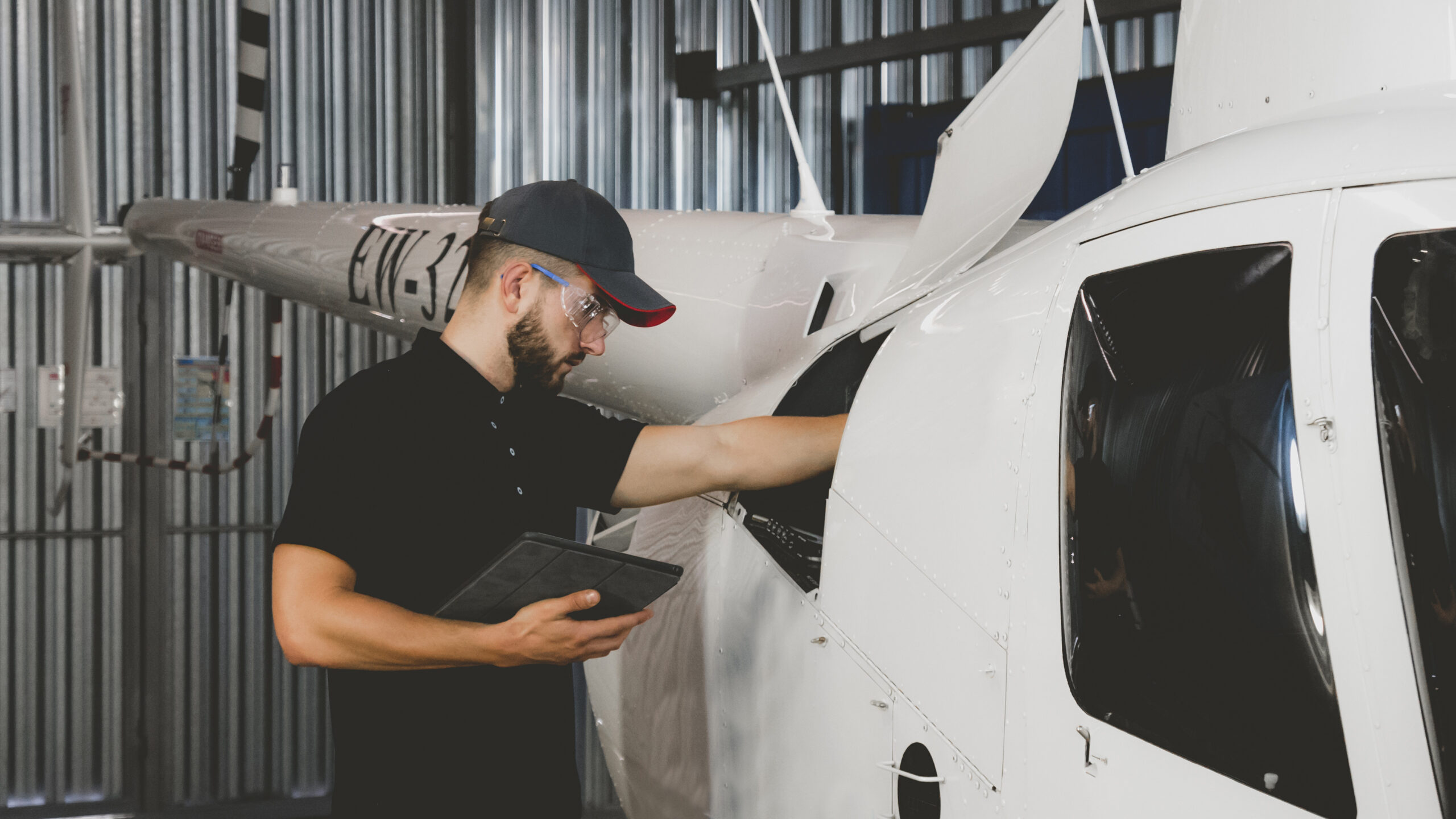
Helicopter Operations
Helicopter mechanics are a specialized niche within the aviation industry, which often leads to a greater demand for skilled professionals. Helicopter operators are found across a wide range of sectors, from local medevac services to federal and military operations.
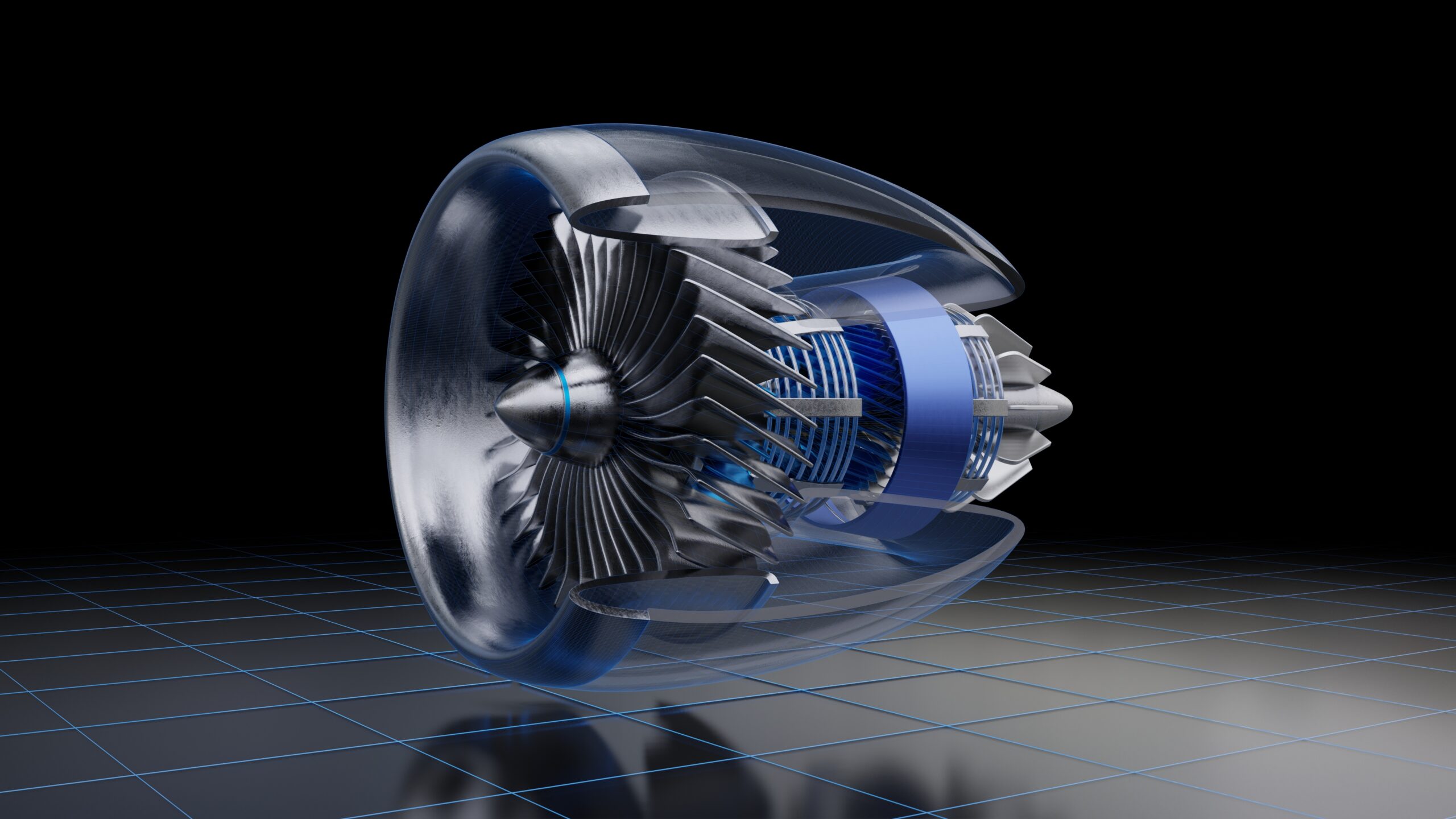
Space Exploration & Experimental Aircrafts
Maintenance of spacecraft and experimental aircraft.
Unmanned Aerial Systems (UAS)
Unmanned aircraft are the future, and they require experienced technicians, as well. Military and department of defense is most often considered when it comes to jobs in this sector, but smaller operations like construction companies and law enforcement use drones, as well.
AMT Career Advancement
Think about more than what's just ahead.
When thinking about starting a career in aviation maintenance, consider more than just the first step, look at the potential in long-term career planning.
There are various paths available for career progression as an aircraft mechanic. Advancement opportunities include specializing in a particular area, obtaining an Inspector Authorization (IA), becoming a shop supervisor, teaching, or transitioning to a corporate role such as quality control or maintenance planning.
These paths can help you grow professionally and increase your earning potential within the industry.
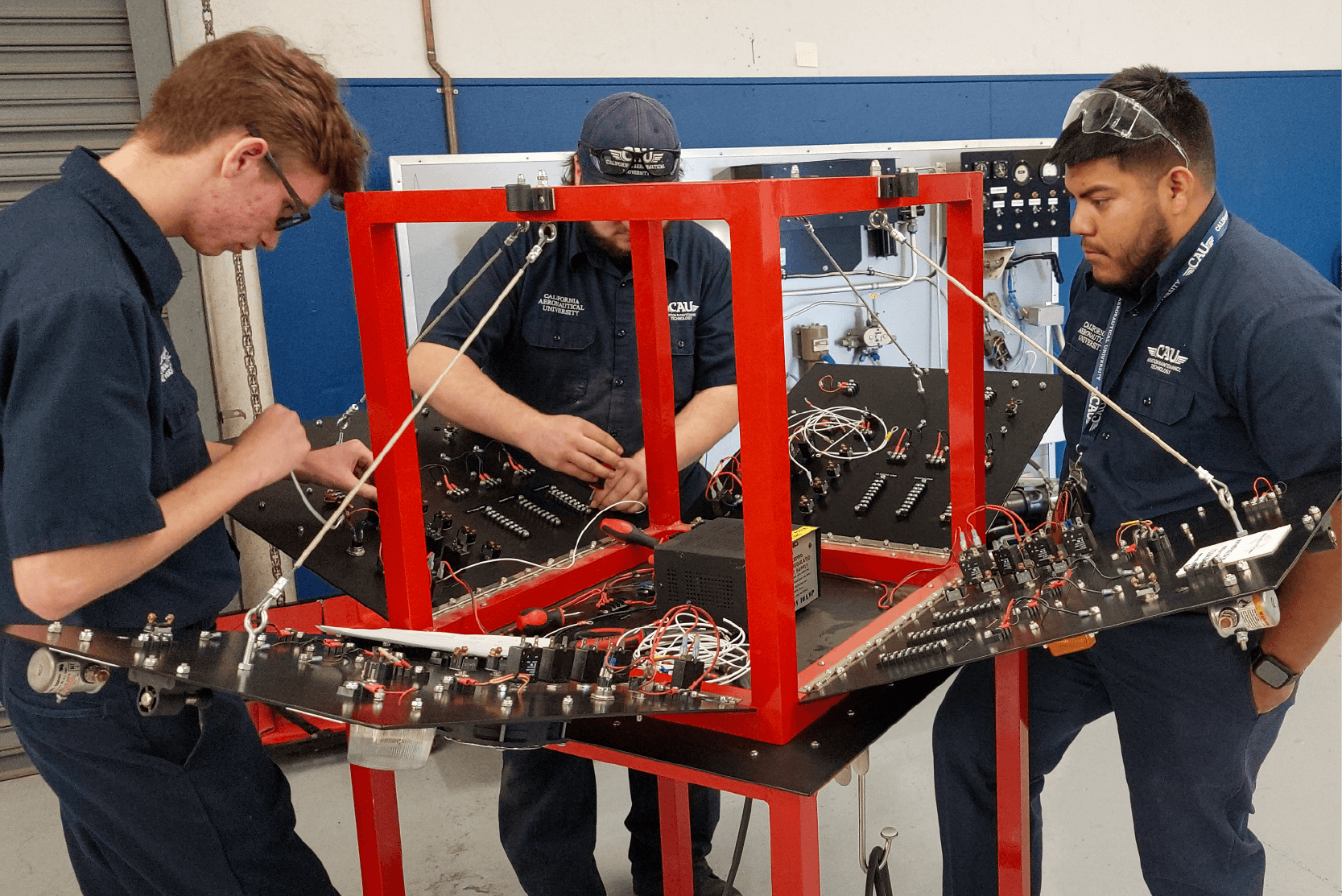
Major airlines are defined as airlines with over $1 billion in revenue per year, according to the U.S. Department of Transportation. These airlines usually fly multiple types of large aircraft over international routes and through all of the major cities. There are currently 13 major airlines in the United States, including Delta Air Lines, American Airlines, and United Airlines (“The Big 3”), as well as Southwest Airlines. These jobs are considered the best airline pilot jobs out there. The pay is lucrative, the schedules are flexible, and the quality of life for most of the pilots at these airlines is very good.
Most major airlines have requirements that are higher than the standard ATP certificate requirements. Historically, pilots have had to spend years at a regional airline, amassing hours of pilot in command (Airline Captain), a college degree, and maybe even management or check airman experience at an airline to be competitive enough to apply to a major airline. With today’s pilot shortage, many of these requirements have been waived, allowing for pilots to be hired at major airlines with fewer hours and no college degree.
Mid-level opportunities for aircraft mechanics come in various forms. This could include obtaining an Inspector Authorization (IA) or taking on a role as a shop supervisor. You might also work with management to acquire special certifications, such as OEM certifications or Hazmat qualifications, to enhance the maintenance program. Additionally, you could transition into a teaching or training role, helping to train and mentor new mechanics.
Roles like supervisor, manager, maintenance controller, or quality insurance inspector might be considered senior-level roles. These roles will often require years of experience and special skills.
At the executive level are positions like Vice President of Aircraft Maintenance and may include overseeing an entire fleet of aircraft on a large scale.
Airlines, cargo, and corporate flight departments often have a Board of Directors, created to oversee management, ensure appropriate policies and practices are created and managed, and audit financials of a business. Board member positions often go to long-time employees who have served in executive-level roles.
Whether you decide to remain a hands-on mechanic throughout your career or move into higher-paying management positions, aircraft maintenance offers a fun, dynamic, ever-growing, and rewarding field to pursue. The industry provides plenty of opportunities for growth and personal fulfillment, no matter which direction you take.
Become An Aircraft Mechanic
Lift off toward your future AMT career with training at CAU. Classes offered year round.
Aircraft Mechanic FAQ
According to the Bureau of Labor Statistics, “the median annual wage for aircraft mechanics and service technicians was $75,020 in May 2023.”
It can take 17-24 months to get your Airframe and Powerplant license from an FAA-authorized training center. It can take several years to get the same certificate through on-the-job training.
Aircraft mechanics can be classified into three types: Airframe & Powerplant (A&P) Mechanics, Avionics Technicians, and Inspection Authorization (IA) Mechanics.
Aircraft mechanics at major airlines and other very large operators can make over $150,00 annually.
Being an airplane mechanic can include high-paced work and there can be pressure to do the job right for the sake of safety, but it’s not an unusually stressful job if the operator has a positive safety culture.
The highest paying aircraft maintenance jobs are often at large airlines and cargo operators.
It usually takes about 17-24 months to obtain your A&P license, if you study diligently and complete the tests immediately upon completion of the classes.
According to the Bureau of Labor Statistics: “Overall employment of aircraft and avionics equipment mechanics and technicians is projected to grow 5 percent from 2023 to 2033, about as fast as the average for all occupations. About 13,400 openings for aircraft and avionics equipment mechanics and technicians are projected each year, on average, over the decade.”
Being an aviation mechanic is not hard if you can complete the 17-24 months of classes, enjoy fixing things, and don’t mind working in a fast-paced, physical environment.
The average age of an FAA aircraft mechanic is 54 years old, according to the ATEC (Aviation Technician Education Council). Over one-third are older than 60.
According to Thrust Institute of Maintenance, the highest paid mechanics are found in Maryland, New Jersey, and Connecticut, while the highest number of aircraft maintenance technicians can be found in Texas.
Aircraft mechanics can obtain certification through an FAA-certified Part 147 AMT School or through an on-the-job training program.
Some aircraft mechanics, especially experienced ones, make over $100,000 annually.
Aircraft mechanics who work for airlines often get free or significantly discounted travel benefits.
According to this article at becomecareer.com,, the highest paid mechanics include aircraft mechanics, industrial machinery mechanics, and heavy equipment mechanics.
AMT Guides
Beyond the Cockpit: Aviation Maintenance Technology School
Do you find aircraft and airplanes interesting? For those who love aviation and get a real sense of reward from solving problems, there are careers in aviation that offer more than simply flying. Airframe and Powerplant (A&P) mechanics are as crucial to successful flight as the pilots. They are the ones who keep airplanes in...Continue reading→
The Importance of Airplane Maintenance
Airplane maintenance is essential to ensure that the aircraft has no damage, is working properly, and can fly safely. [lwptoc] Most people understand that it is necessary to regularly service an automobile to keep it in good running condition. After all, well-serviced cars last longer and are less likely to experience a breakdown and they...Continue reading→
Airplane Repair: What to Know When Something Goes Wrong
It’s easy to think of airplane maintenance as simply “fixing what’s broken.” But there’s much more to than that to keeping an airplane healthy and in flying condition. Before you step into the cockpit or passenger’s seat, there’s a lot to think about regarding the airplane’s maintenance status. Maintenance needs are different depending on the...Continue reading→
Become An Aircraft Mechanic
